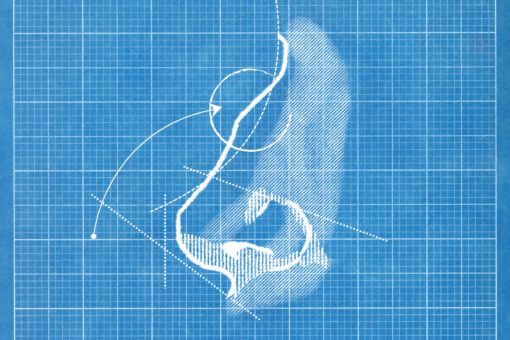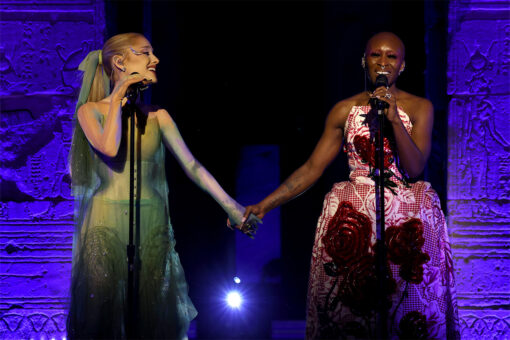Adrienne Rich praised Melanie Kaye/Kantrowitz as “passionate, strategic, pithy, generous, realistic, controversial, unquenchable—like the best of our movements for change” in a commendation of The Issue Is Power when it was first published in 1992. High praise from one of the great poets and theorists of the 20th century — and Kaye/Kantrowitz is worthy of it.
The extent of Kaye/Kantrowitz’s far-ranging intellectual and political contributions are still being assessed, but she is a Jewish feminist activist who made a legion of contributions to our lives today, including linking Judaism and feminism in new ways, articulating an awareness of class and economic justice through a Jewish lens, and making visible racial differences within Jewish communities. Now, a reissue of her book The Issue Is Power invites us all to engage with Kaye/Kantrowitz’s passionate, strategic, pithy, and generous work anew.
Born in 1945 in Brooklyn, New York, Kaye/Kantrowitz discovered progressive activism at a young age with the civil rights movement and the Harlem Education Project. A committed feminist and lesbian activist, Kaye/Kantrowitz worked to end sexual assault and domestic violence, edited and published widely on lesbian and feminist topics, and became the founding executive director of Jews for Racial and Economic Justice. She died in 2018 from complications of Parkinson’s disease. While an accurate depiction of some of Kaye/Kantrowitz’s work, this biographical sketch belies the complexity of Kaye/Kantrowitz’s multiple, vibrant engagements in the world. The Issue Is Power, subtitled “Essays on Women, Jews, Violence, and Resistance,” captures many of these engagements through her provocative essays and lectures.
In “Some Notes on Jewish Lesbian Identity,” Kaye/Kantrowitz uses the lineage of her own name to explain the significance of naming for Jews. She writes, “My father’s name is Kantrowitz, my mother’s Wolfgang. . . .He changed his name to Kaye just before the first child—my sister—was born in 1942….My father says everyone called him Mr. K anyway, at the vacuum cleaner store where he did sales and repair. For business, because Kantrowitz was too long, too hard to say.” Kaye/Kantrowitz then mocks and challenges this argument with two single lines, written in parentheses. She writes first, “(think about Glouchester; McLoughlin)” noting that there are many names that are difficult to say that nevertheless are mainstream and accepted. She then writes, “(think about 174517)” referencing the ways people’s names were erased in the Holocaust. Naming is a weighty business filled with history and politics.
Kaye/Kantrowitz’s insight into naming emanates from feminist thinking about language and the power to name, and she does not only consider ethnicity in her analysis of the politics of naming. She also examines how names are gendered. She writes, “My whole generation of girl children born Jewish mid-forties New York City was named Susan, Ellen, Judy and sometimes Jane.” In these names she identifies the impulse of parents to assimilate into US society through the very way they address their children. While they wanted to assimilate, “whatever the name,” Kaye/Kantrowitz observes, “if you looked like a Jew, you couldn’t hide.” In spite of parents’ intentions, their children, names aside, looked and talked like Jews. Kaye/Kantrowitz explains her own desires to distance her mouth from the Yiddish words of her parents and learn “NOT to talk like that.” Kaye/Kantrowitz continues in this essay exploring what it means to look — and sound — like a Jew, particularly like a (low-class) Jew.
Learning, unlearning, and analyzing meaning are hallmarks of Kaye/Kantrowitz’s intellectual methods. She was part of a community of feminists during the 1970s that brought feminist insights to Judaism and Jewish insights to feminism. For example, she retells the story of Judith with a focus on Judith’s maid and Judith granting her freedom at the end of the story while women dance in her honor. Kaye/Kantrowitz writes, “That’s a Jewish princess,” linking Jewish princess with saving the Jewish people, awareness of class differences, and providing liberation for all.
In another essay “To Be a Radical Jew in the Late 20th Century,” Kaye/Kantrowitz provides a detailed analysis of race, class, and anti-Semitism, exploring how race and class are often conflated to suggest that working class or lower class people are people of color while middle class and wealthy people are white. Using an intersectional lens that explores race, ethnicity, class, and geography, Kaye/Kantrowitz yields a foundational insight that invites readers to consider not intractable polarities, but nuanced differences that invite more linkages than oppositions. These linkages between race, class, and anti-Semitism, forged in feminist and lesbian communities in the 1970s and 1980s, provided a bedrock for Kaye/Kantrowitz’s future work exploring ethnicities within Jewish communities and advocating for a more multi-cultural understanding and vision of Judaism.
Reading The Issue Is Power reveals how these foundational insights, about feminism, lesbianism, race, class, and anti-Semitism, enter broader public dialogues today. The book collects essays that evolve as Kaye/Kantrowitz’s thinking and experiences unfold. As a collection, it invites readers to discover Kaye/Kantrowitz’s righteous and capacious mind. Some pieces may read like a time capsule of an era and place now gone, but her essays repeatedly emerge as fresh and incisive; I continue to be invigorated by her work and how profound and relevant it is to today. Kaye/Kantrowitz concludes “Some Notes on Jewish Lesbian Identity” with this powerful line: “I want a button that says Pushy Jew. Loud Pushy Jew. Loud Pushy Jew Dyke.” I want a button that says that, too. We still need those buttons today.
All quotations are from The Issue Is Power: Essays on Women, Jews, Violence, and Resistance © 1992 by Melanie Kaye/Kantrowitz. Used with permission of Aunt Lute Books.
Header Image design by Grace Yagel. Buttons via by BarbraFord / Getty Images.



